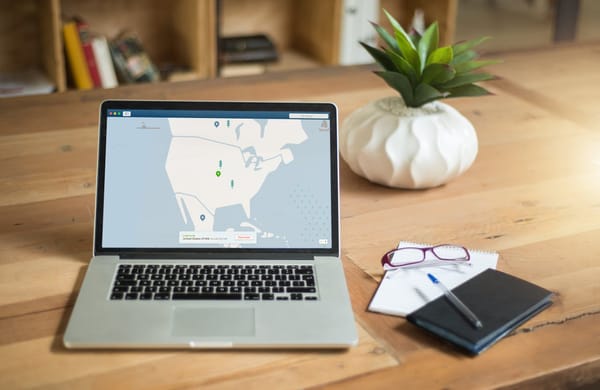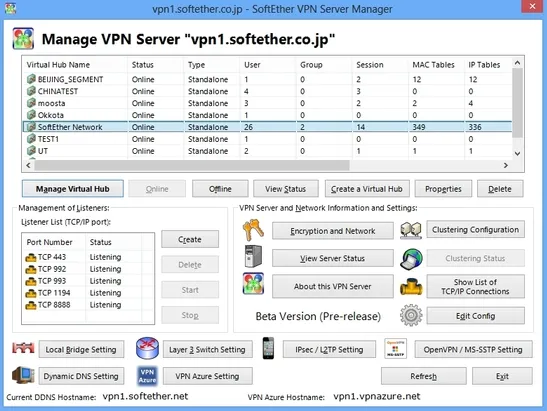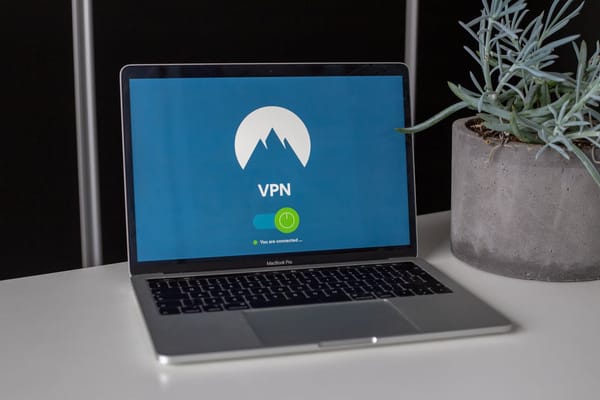Unleashing the Power of VPN: 10 Benefits for Your Digital Security
10 Reasons to Embrace VPN Usage: Enhancing Your Digital Security and Privacy
Virtual Private Networks (VPNs) are not just a tool for tech experts; they're an essential part of modern digital life. Here, we will explain why.
What is a VPN?
A VPN is a service that encrypts your internet connection and reroutes it through a server in a location of your choice. This provides increased privacy and security for your online activities.
Why is VPN Important?
1- Enhanced Privacy
Virtual Private Networks (VPNs) provide an additional layer of privacy and security to your online activities. By masking your IP address, VPNs ensure that your browsing behavior remains anonymous and inaccessible to Internet Service Providers (ISPs) and other third parties.
This enhanced privacy feature allows you to browse the internet with peace of mind, knowing that your personal information and online activities are protected.
2- Cost Effective Security Solution
Virtual Private Networks (VPNs) offer a cost-effective and comprehensive security solution by encrypting internet connections, protecting sensitive data, ensuring privacy, and allowing anonymous browsing. They are user-friendly and provide extensive features for individuals and businesses to enhance online security.
3- Enhanced Security Measures
Virtual Private Networks (VPNs) offer advanced security features that go beyond traditional internet connections. By encrypting your data, VPNs ensure that your online activities remain private and protected, guaranteeing a secure connection even when using public Wi-Fi networks.
With VPNs, you can browse the internet with peace of mind, knowing that your sensitive information is shielded from prying eyes and potential cyber threats.
4- Safe Online Transactions
With encrypted connections, VPNs offer a safer environment for online banking and shopping. When you use a VPN while conducting online transactions, your data is encrypted and transmitted through a secure tunnel to the VPN server. This encryption prevents unauthorized access and protects your sensitive information, such as credit card details and login credentials, from being intercepted by hackers or malicious actors.
For example, let's say you are connected to a public Wi-Fi network at a coffee shop and want to make an online purchase. Without a VPN, your data is vulnerable to interception by anyone on the same network. However, if you use a VPN, your connection is encrypted, making it virtually impossible for anyone to eavesdrop on your online activities. This ensures that your financial information remains secure and that you can shop online with confidence, even on unsecured networks.
By using a VPN, you create a secure tunnel between your device and the VPN server, effectively shielding your online banking transactions from prying eyes. This added layer of protection helps safeguard your sensitive information and provides peace of mind while conducting financial transactions online.
5- Bypass Censorship
In regions with restricted internet access, VPNs provide users with the ability to access the full web, including websites and online services that may be blocked or censored by local authorities.
By encrypting internet traffic and masking the user's IP address, VPNs create a secure and private connection, preventing third parties from monitoring or interfering with online activities. This not only enables individuals to freely browse websites and communicate online, but also ensures the protection of sensitive personal information and enhances online privacy.
Additionally, VPNs can be used to bypass geographical restrictions, allowing users to access content that is normally restricted based on their location, such as streaming services, social media platforms, or online gaming servers.
6- Enhances Online Privacy
One of the key benefits of using VPNs is that they effectively prevent websites and advertisers from tracking your online behavior, thus enhancing your online privacy. By encrypting your internet connection and routing it through a secure server, VPNs create a virtual tunnel that shields your online activities from prying eyes.
This added layer of protection ensures that your personal information remains confidential and that your browsing habits are not monitored or exploited for targeted advertisements. Therefore, VPNs play a crucial role in safeguarding your online privacy and providing you with peace of mind while browsing the internet.
7- VoIP Calls Security
Encrypting VoIP calls with strong encryption algorithms adds an extra layer of security, protecting calls from unauthorized access and eavesdropping. End-to-end encryption ensures the integrity and privacy of the calls, preventing interception and deciphering of call content, enhancing the overall security of VoIP communication.
8- Access to Restricted Content
One of the significant advantages of using a VPN is the ability to bypass geographical restrictions on websites and streaming services. For example, let's say you are traveling abroad and want to access your favorite online streaming platform, but it is not available in the country you are currently in.
By connecting to a VPN server located in your home country, the VPN masks your IP address and makes it appear as if you are accessing the internet from your home country. This allows you to bypass the geographical restrictions imposed by the streaming platform and enjoy your favorite shows and movies as if you were back home.
VPNs open up a world of possibilities by granting you access to content that may otherwise be blocked or unavailable in your current location.
9- Advantages of Using VPNs in Online Gaming
VPNs can significantly enhance online gaming experiences by addressing common issues such as lag and IP bans. With the use of VPNs, players can enjoy smoother gameplay, reduced latency, and improved connection stability.
Moreover, VPNs offer the ability to bypass IP bans, allowing players to access games and servers that may otherwise be restricted. By providing a secure and private connection, VPNs also help protect gamers from potential cyber threats and DDoS attacks. Overall, integrating VPN technology into online gaming can greatly enhance the gaming experience, making it more enjoyable and accessible for players around the world.
10- Remote Access
Virtual Private Networks (VPNs) provide a secure and convenient way for individuals to access their home or work networks even when they are away or traveling. This allows users to remotely connect to their network resources, such as files, applications, and databases, ensuring that they can continue their work or access important information from anywhere in the world.
With the use of VPNs, individuals can have peace of mind knowing that their data is encrypted and protected from unauthorized access, providing an added layer of security to their remote connections.
Conclusion
In conclusion, a VPN is not just a tool for the privacy-conscious or those circumventing geo-restrictions; it's a fundamental component of a secure, private, and unrestricted internet experience. As our digital footprints grow, incorporating a VPN into your online routine is a wise step towards safeguarding your digital life.







